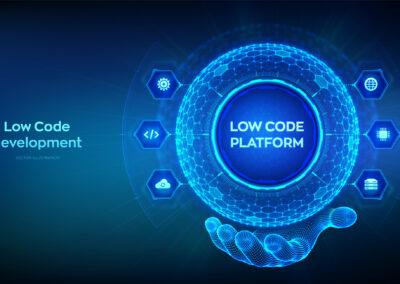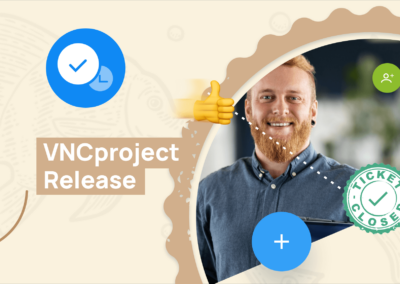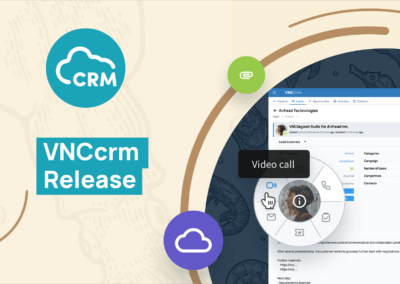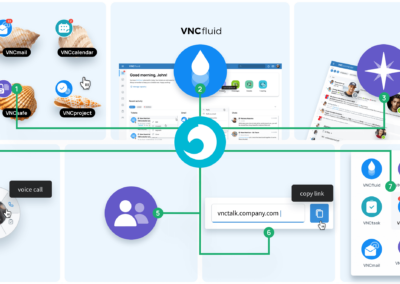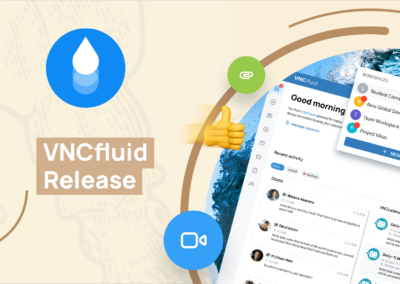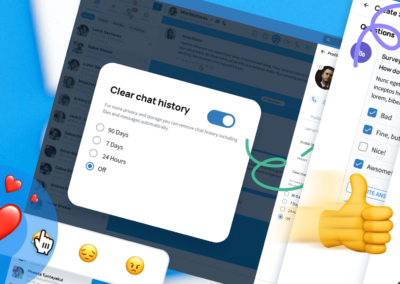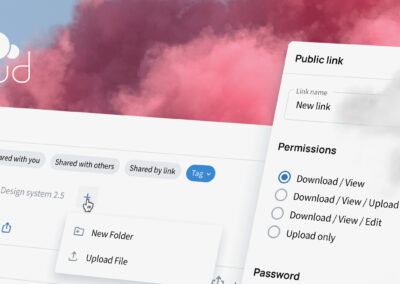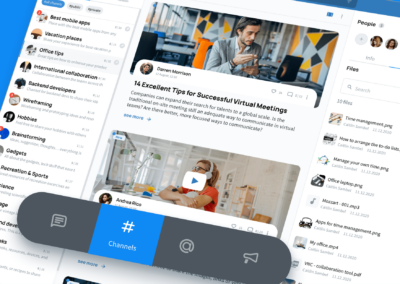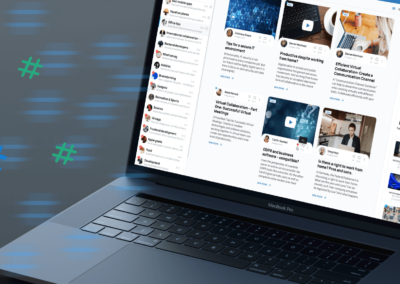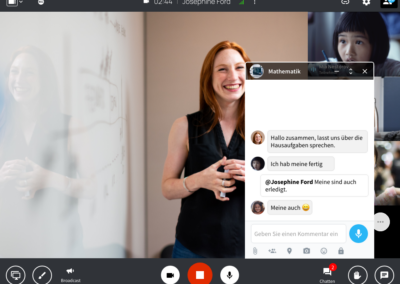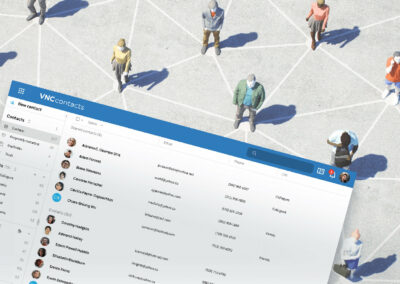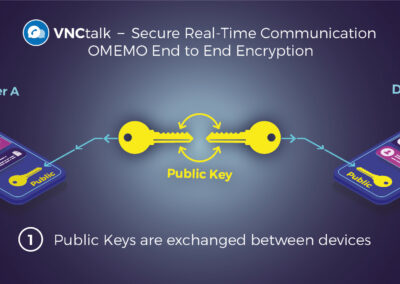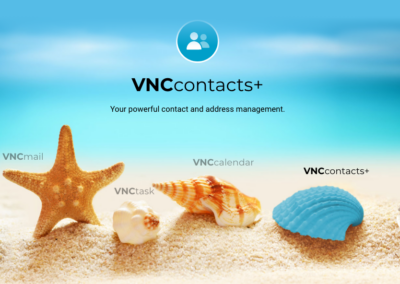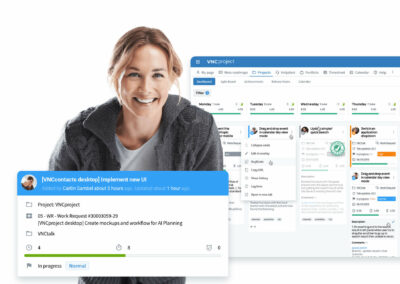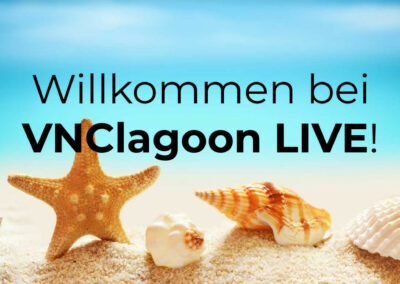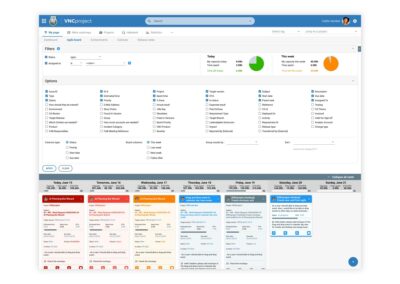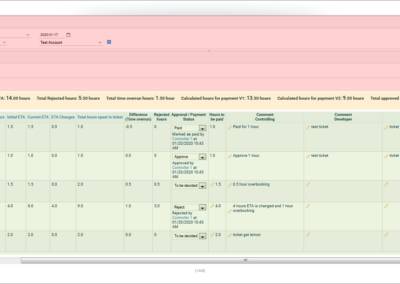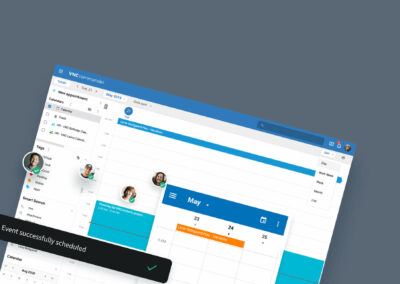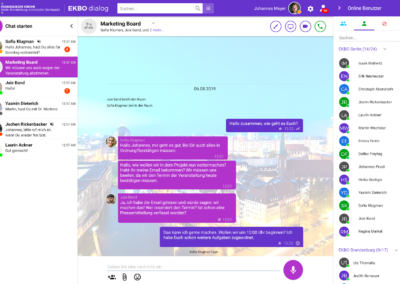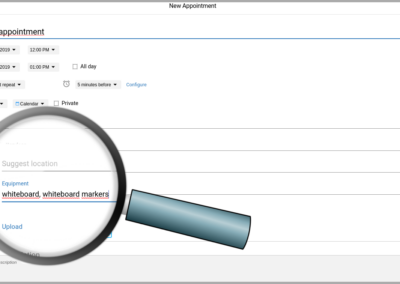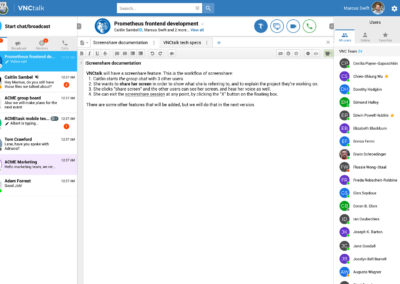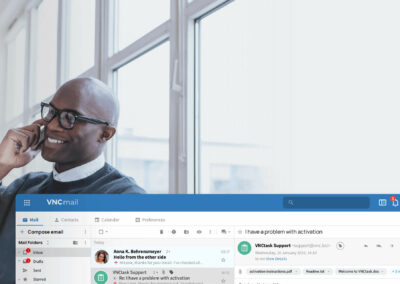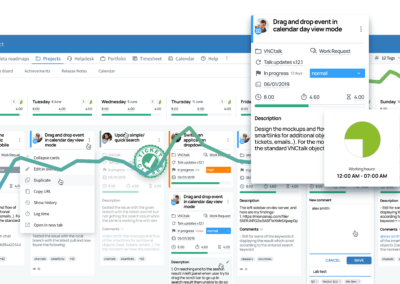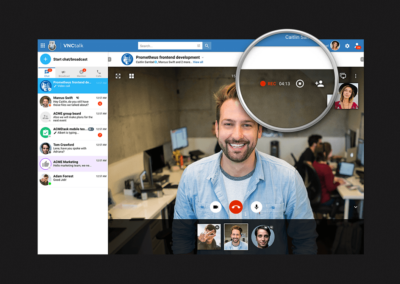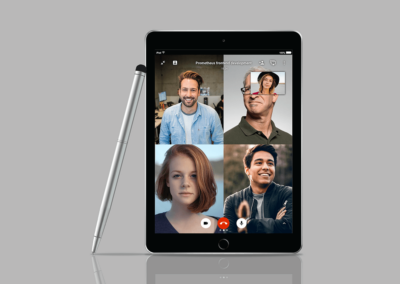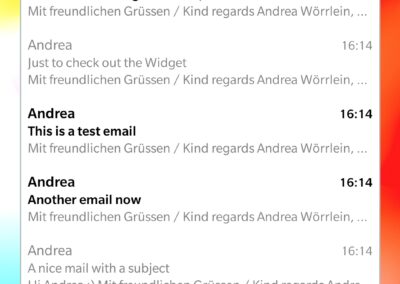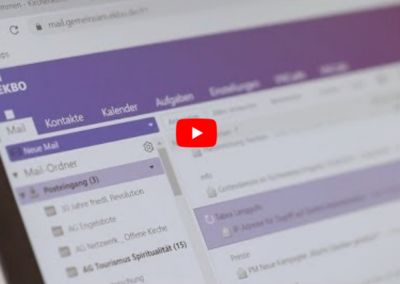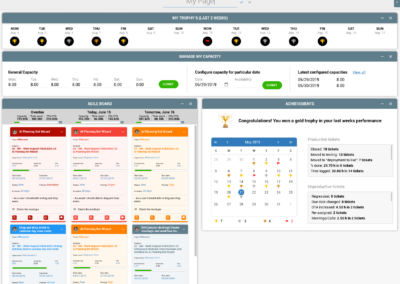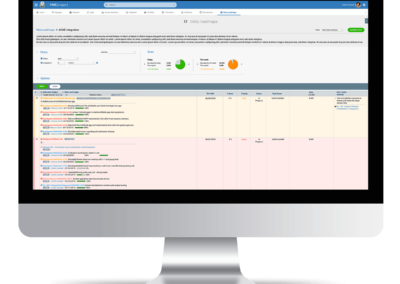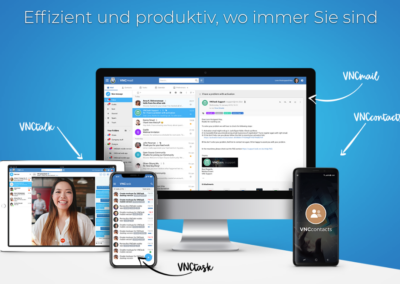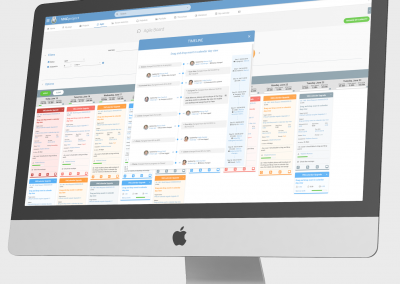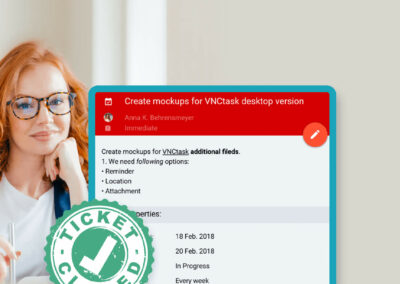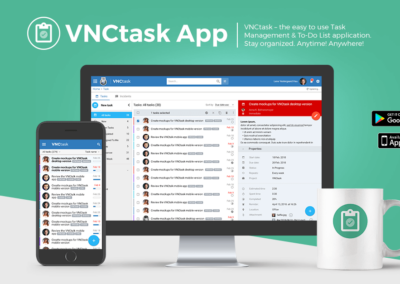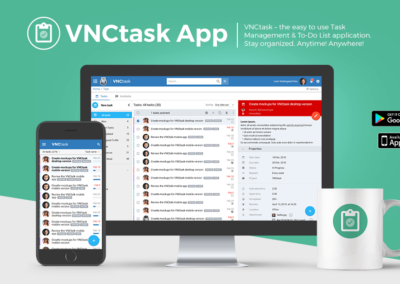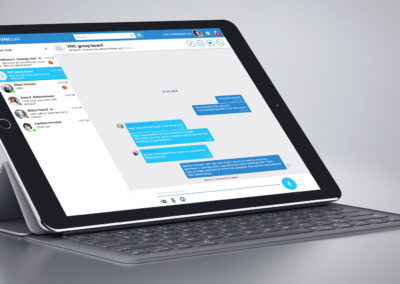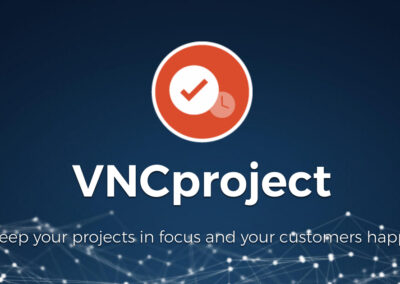Therefore VNC decided some years ago to build an integrated stack of business software components based on (commercial) open source technologies and products.
We had to learn very quickly that our customers, which are e.g. large financial institutions, market leading telcos or government agencies as well as science & research organizations (from 5 up to 5 million users), did not accept more than one vendor as a counterpart when opting for new and innovative software. They requested a sort of „one-stop-shopping“, which translates in „one-stop-responsibility“. Therefore we had to enhance our portfolio by adding infrastructure services, which we consequently tailored on top of leading open source (LINUX) environments and architectures.
That’s how VNC became a leading developer, vendor and cloud integrator of open source based business software on a world-wide scale.
VNC has proven in a number of impressive projects that we are able to provide our customers with integrated, reliable, scalable, cost effective solutions based upon open standards.
And I think it is the right time now to share our experiences and know-how with prospective and existing customers as well as IT companies out there who are interested in cooperating with VNC.
I strongly believe that the future of business software will be open source based. We have proven that customers do not have an often presumed risk by implementing open, innovative software, but on the contrary gain tremendous value and competitive advantages by doing so.
But let me explain some core concepts, technologies and products in more detail first.
Who is VNC?
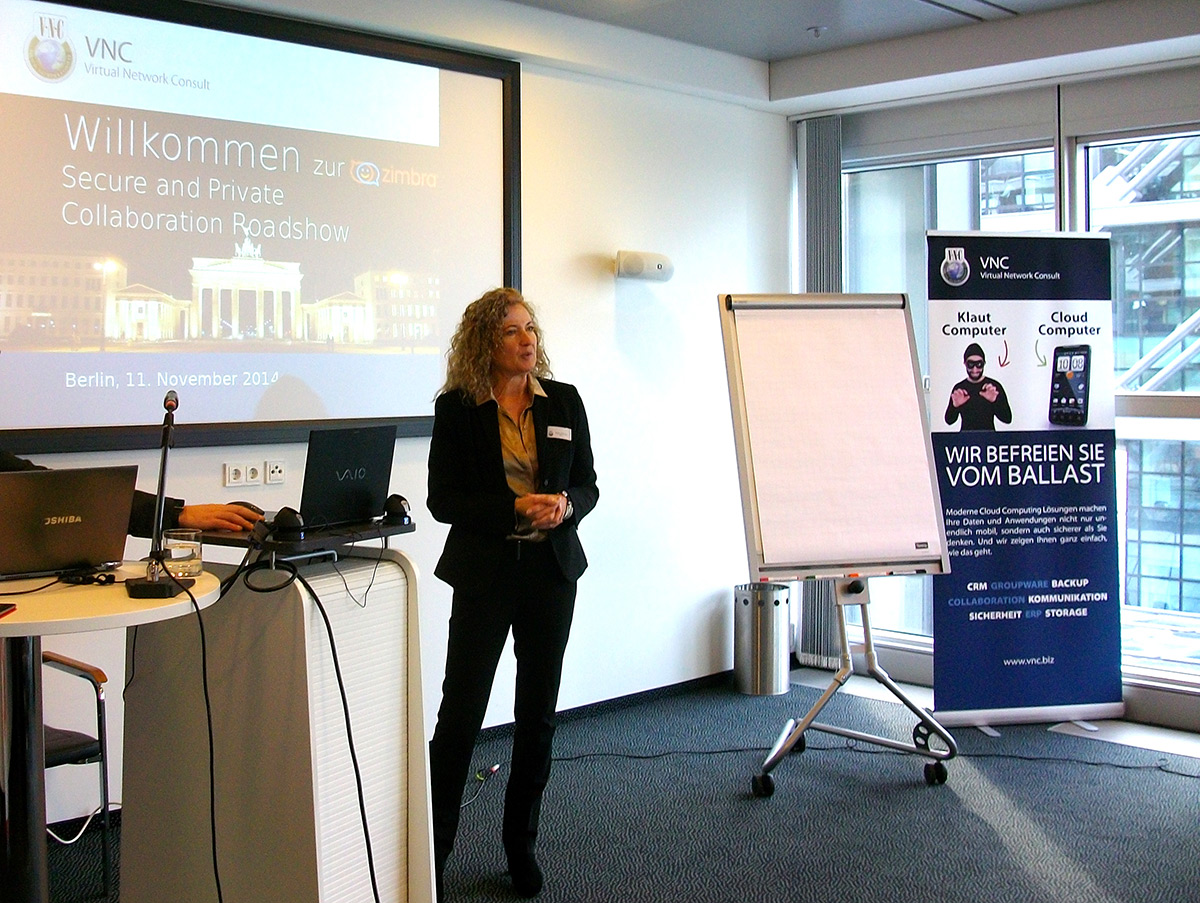
VNC is a leading vendor of an integrated solution stack for organizations who prefer to go with software that is based on open standards – thus: commercial open source. We invested lots of energy to build our very unique stack which allows to replace typical commercial software such as Microsoft Exchange, Microsoft Sharepoint, Lync, Dynamics ERP, CRM, etc. or Lotus Notes or even Google Apps and so on.
The VNC headquarter is located in Switzerland, with subsidiaries in Germany and India.
The impressive list of VNC clients, who are using one or several of the VNClagoon technologies, products and / or solutions, demonstrates the solidity of our concept: the future of modern software will no longer rely on closed source products.
VNC has active partnerships with key vendors such as Red Hat, Zimbra, ForgeRock, EnterpriseDB and a variety of open source communities.
The international orientation of VNC makes us extremely attractive for world class software developers, who find a highly innovative, open, interdisciplinary and intercultural work environment with us. VNC aims to work with the top guns. And we can state that we already have several top developers in our team which makes us extremely proud as it shows us that our strategy is attracitve to such bright people.
Our virtual competence regarding processes and applications that we have built up in recent years, allows us to select the world’s best developers from a pool of highly talented professionals and thus to employ a global, highly motivated and committed team.
We collaborate with the help of our own tools and products such as:
- VNCproject (HelpDesk, Project & Source Code Management, Automated Testing),
- VNCtalk, which provides us with a WebRTC – Web Real Time Communication (chat, video chat, file transfer, screen sharing, SIP phone integration, etc.)
- VNCchannels, a safe place to store data, share insights, grow knowledge & collaborate!
In fact, VNC is using nearly all solutions we develop ourselves.
What is VNClagoon?
VNClagoon is the name for our 4-layer stack comprising infrastructure, middleware, business software products and our own front-end webserver.
VNC customers can buy their individually tailored stack from us as a single vendor. VNC and VNC partners make sure that all required components are set up, configured, operated (on-premise, managed services or hosted in the VNCdatacenter) and at the same time integrated with 3rd party tools and products of our customers.
Tech background: VNClagoon is built on top of open source or commercial open source components. VNC is permanently monitoring the open source communities to select only best-of-class, sustainable and mature core technologies and components like OpenShift, JBOSS, GlusterFS (RedHat) or Debian based KVM-proxmox, DRBD etc. as well as leading business software core products like Redmine, Zimbra, Plone, Prosody, Odoo, and others.
What is VNCuxf?

VNCuxf (VNC user experience framework) is the single page web front-end developed by VNC, allowing easy and nearly unrestricted development of customer specific UX (user experience) as well as UI (user interface / visual design) on top of VNClagoon business software products. Customers can differentiate in the market by adding their own look and feel (CD/CI) on top of the set of products they have chosen. Contrary to implementing Microsoft Office 365 or Google Apps, our customers (e.g. Telcos) are not just another service provider for these – even competing – suppliers but have the chance to be unique.
Tech background: VNCuxf is built on top of market leading components like HTML5, AngularJS, Bootstrap, Gulp, Bower and others.
What are the VNC products?
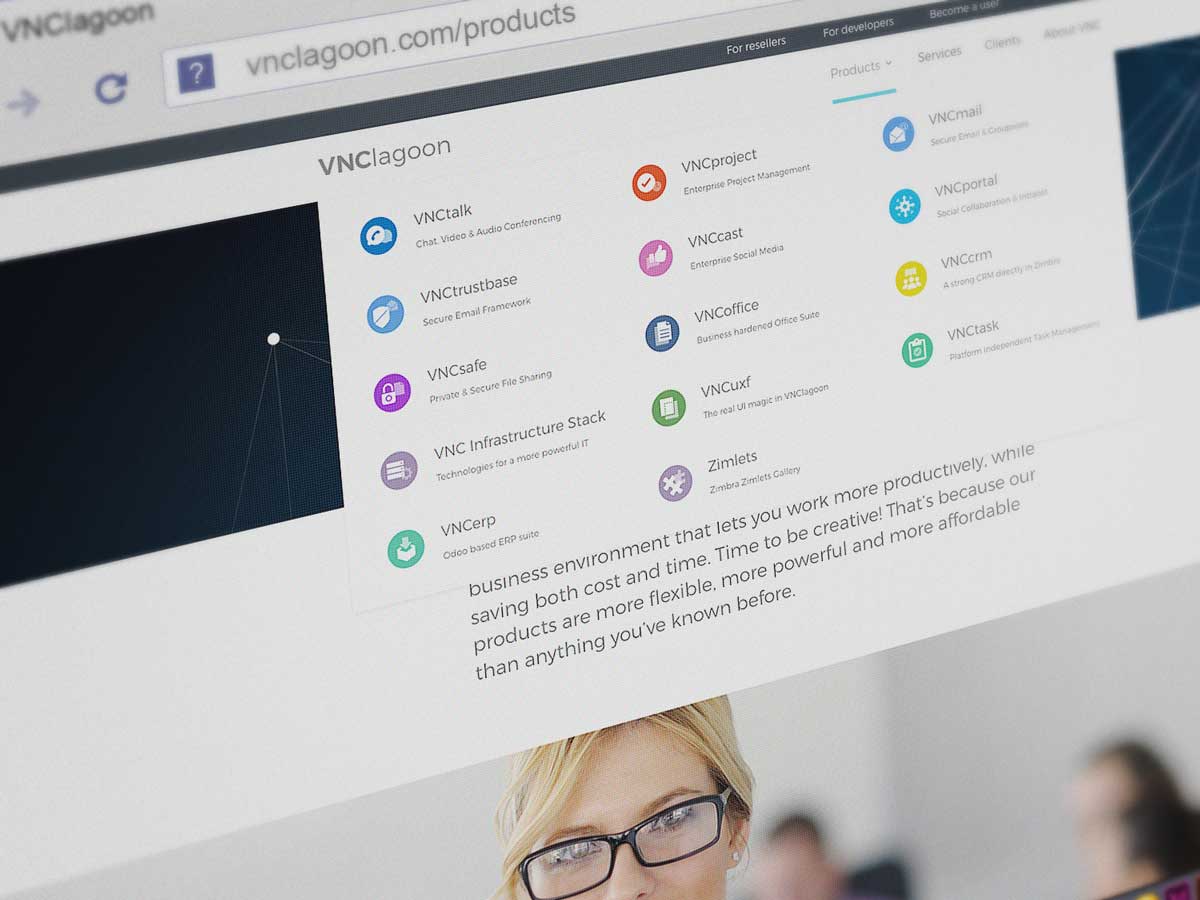
The VNC software products cover an extremely wide range, such as email, groupware, enterprise portals, social media, project management, unified communication, and other business applications.
VNC has selected a number of market leading technologies and products. We always select carefully the best-of-class and best-of-breed products to further enhance functionalities and integrate those components into our solution stack.
We believe in ever growing complexity of business environments. Therefore we don’t believe in „one size fits all“ like many start-ups seem to do. We bet on complex back-end functionality and user specific customizing of the front-end – which is possible with the help of VNCuxf.
Tech background: most of the VNCproducts are based upon leading open source components like e.g. Zimbra, Redmine, Plone, etc. Only with this approach to select mature and sustainable full fledged products with our own add-ons and plugins as well as thousands of 3rd party add-ons we are able to compete with specialized vendors in various areas. For example, our VNCproject is probably one of the most powerful tools when it comes to software development planning, source code management and distribution but at the same time efficient project planning and controlling. Read more about our different products in follow-up blogs.
What is VNCaxf?
We bet on tools like PostgreSQL, RedHat JBOSS etc. to connect and integrate a number of specialized vertical products.The benefits for the customer are the availability of seamless workflows between applications and the possibility to interact with their legacy components and products. VNCaxf is used by large organizations, processing millions of transactions, integrating more than10 legacy systems in some cases and managing complex authentication mechanisms like Smartcard, RSA Tokens, SMS OTP etc.
Tech background: VNCaxf is built on top of market leading components like PostgreSQL, ForgeRock, RedHat JBOSS as well as VNC specific software like VNCprovisioner, VNCimporter, and others.
What are the VNC infrastructure components?

VNC developed its own so called VNC Cloud Infrastructure Stack which is entirely based on leading open source (LINUX) components. The unique VNC Infrastructure Stack combines standardized but open structures with proven, reliable hardware and software components, resulting in high performance and availability, extreme customizability and fast integration. It includes components for scalable storage systems, virtualization, backup and monitoring. Our infrastructure solutions provide a maximum of flexibility and freedom of choice. Their capacity can be scaled up or down to meet current requirements – without large investment. Virtualization of servers and storage guarantees high failure safety and performance – while reducing operating costs by up to 50%. Secure components make sure that businesses always remain in control of data and applications.
Tech background: The VNCinfrastructure-stack is build on top of either Debian / Ubuntu KVM-proxmox and DRBD or alternatively on the RedHat suite (OpenShift, CloudForms, GlusterFS, Ceph, etc.). Monitoring is implemented with the help of Icinga which allows a seamless controlling of any component – hardware and software processes – and triggers the creation of tickets in VNCproject in case of an emergency or delayed action by service desk members.
What are the benefits for VNC customers?
- all components are open source based
- all features and functionalities are available in any browser
- all components follow the responsive design concept and are therefore available on any device
- all components are reflecting open standards
- using open technologies means no vendor lock-in
- the products are best-of-class and best-of-breed
- we offer professional products with a broad and deep feature set
- all products are highly customizable
- there are no restrictions in terms of scaling
- open source means: transparency
- no hidden / closed software components, therefore no hidden threats
- all source code is accessible for customersand more.
- lower cost
- interoperability
- CI/CD within software
- flexibility
- freedom
- high quality
- extensibility
- business agility
- growth
- mitigation of business risk
- security
- auditability
What are typical customer scenarios of VNC?
VNC has customers in nearly all industries, countries as well as target groups.
Financial Institutions / Banks
One example for a VNC customer is one of the largest international banks in the world.
The scope of that project was to replace an existing, end-of-lifecycle, costly and failure prone inhouse solution for customer communication called SecureMail.
The bank wanted to make sure to not repeat the issues experienced with proprietary and closed software, therefore approached VNC with the following requirements:
- flexible and customizable software based upon standards and allowing integration with legacy systems
- transparent source code to meet IT security requirements (regular audits)
- reasonable license / subscription cost (XXX.XXX users)
VNC managed to set up the VNCmail software stack successfully, to integrate with complex legacy systems, to allow a granular authentication (OTP, smartcard, etc.) and to customize so called closed communication groups avoiding unintentional information exchange with unauthorized recipients. This solution stack became the VNCtrustbase or SecureCommunication.
The infrastructure deployed in this project is LINUX KVM-Proxmox for virtualization and a number of other open source technologies.
The project is successfully online since 2011 and has a very high adoption rate by the bank’s customers. The project budget is much lower compared to the cost of commercial / closed source software. Our next activities will be to continuously enhance the functionality with unified communication (VNCtalk), file sync and share (VNCsafe) and other features.
Telecommunication
Another example for a VNC customer is a huge and market leading European Telco.
As VNC setup a multi-million user environment for a world leading telecommunication company some years ago, we were selected by this customer to implement a platform based on best-of-class open source technologies and products to allow the Telco to offer modern business (collaboration) software to their mid-market customers.
The requirements of the customer are:
- flexible and customizable software based upon standards and allowing integration with legacy systems
- transparent source code to meet IT security requirements (regular audits)
- reasonable license / subscription cost (XXX.XXX users)
- innovative, unique and individual (UX/UI) offering with Telco CD/CI
- cost-efficient services enabling the Telco to compete with MS Office 365 and Google Apps
VNC is momentarily integrating the first part of the stack based on VNCmail and VNCsafe. Apart from VNC products we also integrate with several Telco services like SMS, Fax, Videocall etc.
On the long run the Telco customers will be able to subscribe to a number of VNC, Telco and 3rd party services via a market place.
This project will allow the Telco to market their own, branded, unique and innovative services portfolio and thus be leading in terms of „convergence“.
Science & Research
The last example for a VNC customer is a leading Science & Research organization in Germany.
Throughout the European Union, open source based software is rapidly gaining ground1, especially in science and research institutions. These institutes are depending on their installed software to support utmost security requirements in order to protect their researchers from data theft and other damages.
Therefore, the customer asked VNC to replace their installed Microsoft Exchange environment with an open source based groupware for more than 3.000 users.
The requirements of the customer were:
- full-blown groupware features on any operation system and on any device
- full migration of emails, calendar entries, address books, shares from Microsoft Exchange to the new system
- minimum downtime during migration
- integration of unified communication into the groupware
- ability to integrate sync & share
Currently, the migration of all user data is done, all users are successfully online and getting familiar with the new groupware. The next steps will be to add unified communication capabilities with VNCtalk (chat, group chat, video chat, etc.).
Yours sincerely,
Bernd Rodler
VNC – Virtual Ntwork Consult AG
Chairman of the Board
Poststrasse 24, CH – 6302 Zug, Switzerland
Phone: +41 (41) 727 52 00
Fax: +41 (41) 727 52 09
info@vnc.biz; www.vnclagoon.com
1„The European Commission has updated its strategy for internal use of Open Source Software. The Commission, which is already using open source for many of its key ICT services and software solutions, will further increase the role of this type of software internally. The renewed strategy puts a special emphasis on procurement, contribution to open source software projects and providing more of the software developed within the Commission as open source.“
(http://ec.europa.eu/dgs/informatics/oss_tech/index_en.htm, Open Source Strategy in the European Commission“)

